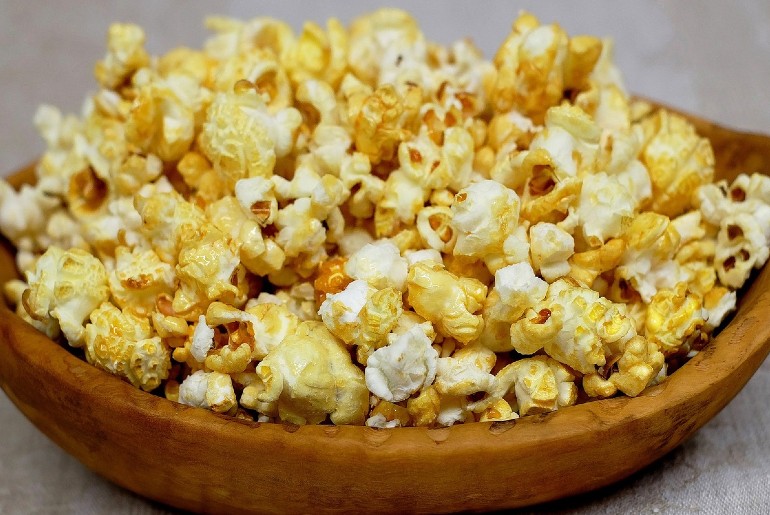Just when you were done lamenting over the 18% Goods and Services Tax (GST) on your favourite ready-to-eat parottas, the Gujarat Authority of Advanced Ruling (AAR) announced that a bag of ready-to-eat popcorn would also attract 18% GST. Jay Jalaram Enterprises (JJ Enterprises), a Surat-based popcorn manufacturer approached AAR for clarity on the GST rate for ready-to-eat popcorn. The AAR informed him that a normal packet of corn that needs heating before eating attracts 5% GST. But a packet of ready-to-eat popcorn that’s oiled and seasoned will attract 18% GST. The ruling adds that JJ Enterprise’s popcorn packets are ready to consume so it attracts 18% GST. However, they are different from microwave popcorn packets that require heating to pop up the corns to make them edible. Well, so maybe apart from popcorn, you can learn to google and prepare delicious popcorn substitute snacks.
Ready-To-Eat Popcorn To Attract 18% GST
According to a report published in the Times of India, the JJ Enterprise manufactured ready-to-eat popcorn under the brand name JJ Popcorn. The popcorn packets manufactured are ready to eat so they will attract 18% GST. The applicant states that its popcorn fell under Entry 50, tariff item 1005 of Schedule 1 of Notification 1/2017.
This majorly means that it’s sold as maize (corn) in a unit container, bearing a registered brand name. So the applicant stated that this shouldn’t bear more than 5% GST. It also referred to a ruling by the Supreme Court where they equated parched rice to puffed rice. Jay Jalaram Enterprises claimed that the same logic should be applied to its popcorn. While we’re debating over popcorn if you’re wondering when you can dine out in India resumes normalcy, then renowned restauranter AD Singh throws light on your queries.
Earlier This Month Ready-To-Eat Parottas Attracted 18% GST
However, AAR revealed that the process of producing ready-to-eat popcorns involves heating of corn kernels. This, in turn, involves the addition of oil and seasoning. Thus the AAR concludes that the product doesn’t remain a grain after the popcorn manufacturing process. Earlier this month, the Karnataka government clarified that frozen and preserved wheat parotta or Malabar parotta must be taxed at more than triple the GST tax rate on the roti.
Also Read: #LockdownRecipes: Make Mac & Cheese In A Mug
Decision to impose 18%GST on Parrotta/Parantha is Govt of India’s Marie-Antoinette “if people don’t don’t have bread let them eat cake” moment; when need is to provide bread & butter,finance ministry is taxing Parantha -Govt “Parantha tax terrorism” is act of stupidity & cruelty
— Jaiveer Shergill (@JaiveerShergill) June 12, 2020
Sources from India Today state that frozen parotta is preserved, sealed, branded and usually sold at higher prices. So, it cannot be considered a staple food for the poor as its mainly consumed by a class of people who can afford to pay taxes. AAR stated that the ready-to-eat parottas must attract 18% GST while roti continues to be taxed at the concessional GST tax slab rate of 18%. Well, ready-to-eat popcorn might become expensive, but preparing restaurant-style food at home never will!
First Published: June 26, 2020 2:45 PM





